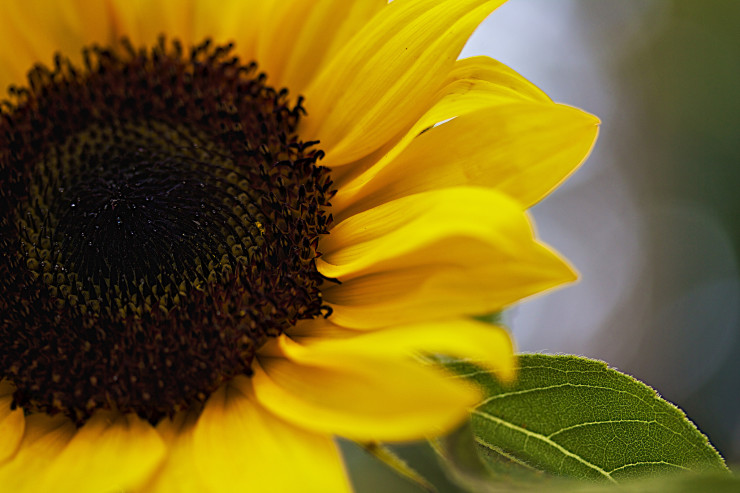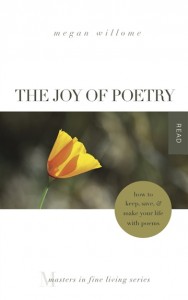Last month, we read Megan Willome’s The Joy of Poetry: How to Keep, Save and Make Your Life With Poems together as a community in our book club. We wrapped up with a sense of wanting ongoing conversation, so last week we started an additional three weeks of being one another’s Poetry Buddy, creating a space together in the comment box to talk about a particular poem.
This week, let’s look at White Currants, a poem by Amy Lowell featured recently at Every Day Poems.:
White Currants
Shall I give you white currants?
I do not know why, but I have a sudden fancy for this fruit.
At the moment, the idea of them cherishes my senses,
And they seem more desirable than flawless emeralds.
Since I am, in fact, empty-handed,
I might have chosen gems out of India,
But I choose white currants.
Is it because the raucous wind is hurtling round the house-corners?
I see it with curled lips and stripped fangs, gaunt and haunting energy,
Come to snout, and nibble, and kill the little crocus roots.
Shall we call it white currants?
You may consider it as a symbol if you please.
You may find them tart, or sweet, or merely agreeable in colour,
So long as you accept them,
And me.
— Amy Lowell, from Complete Poetical Works of Amy Lowell
Now, flip to the end of The Joy of Poetry and read through Megan’s tips for How to Journal About a Poem. Last week, we featured the first three of her suggestions for those who don’t have the book handy, and here are a couple more (but do be sure to read the rest—they’re really terrific ideas):
How to Journal About a Poem (excerpt)
4) If you have a little poetry knowledge, don’t be afraid to use it. If you’re reading a sonnet, ask yourself whether it strictly follows sonnet form, or if it breaks it, why? Does that improve the poem or make it frustrating? If you can’t remember anything from your last poetry unit in middle school, then ignore this paragraph. No worries.
5) Let your mind wander as you write. Did the poem remind you of a memory? Did it make you think of a book you’ve read or a song you’ve heard? Did the speaker’s voice sound like someone you know? Did it offer comfort or insight into a particular situation in your life? Or—and this is just as valid a response—do you leave the poem wondering, “What was that all about?” Does it go in the category of Not For Me?
And then? Well, then meet us in the comment box. Be our Poetry Buddy and share your thoughts and ask questions about Lowell’s “White Currants.”
Check out our book club discussion of The Joy of Poetry
Photo by Kelli Matthews, Creative Commons license via Flickr. Post by LW Lindquist.
___________________
Megan Willome’s The Joy of Poetry—part memoir, part poetry reflections, part anthology—takes readers on a journey to discovering poetry’s purpose, which is, delightfully, nothing. “Why poetry?” Willome asks. “You might as well ask, why chocolate?” Poetry reflects nothing more and nothing less than the pure joy of living, loving, and being, in all of its confusion and wonder. Willome’s book will gently guide you to read, write, and be a little more human through language’s mystery and joy.
—Tania Runyan, author of How to Read a Poem: Based on the Billy Collins Poem “Introduction to Poetry”
- Earth Song Poem Featured on The Slowdown!—Birds in Home Depot - February 7, 2023
- The Rapping in the Attic—Happy Holidays Fun Video! - December 21, 2022
- Video: Earth Song: A Nature Poems Experience—Enchanting! - December 6, 2022


Megan Willome says
So, the first thing I had to do with this poem was Google “white currants” because I did not know they existed. (They do.) And I don’t blame myself for asking because Lowell plays with the idea: “Shall we call it white currants? / You may consider it as a symbol if you please.” She’s inviting us to take this fruit beyond face value.
Then there’s the canine-like creature in the middle of the poem. I still don’t know what exactly to make of it, except that this poem contains not only fruit “more desirable than flawless emeralds,” but also “curled lips and stripped fangs,” “snout,” “nibble,” “kill the little crocus roots.”
Now I am more interested than ever.
Will Willingham says
It’s interesting to me that in the beginning, she seems to assert there is such a thing: “Shall I give you white currants?” (They must exist if she’s to give, them right?) But then as the poem goes along, she sort of erodes the certainty of that, by suggesting she likes “the idea ” of them, then later with the “Shall we call it white currants?” I like the bit of tension that she creates by downgrading this idea, subtly calling it into question until she finally invites the reader to “consider it as a symbol if you please” and wonder what she was thinking all along. 🙂
Laura (L.L.) Barkat says
I found this poem puzzling 🙂
And, like Megan, I didn’t know there were white currants (I figured maybe those were just red ones or black ones that hadn’t quite found their redness or blackness yet). Now, of course, I would like to taste a white currant.
So the white currant already feels “other” to me from the start. And maybe that is part of what’s going on here. The question of the “other.” And maybe that’s not it, either, but in the end (quite literally, it comes at the end of the poem!), I was most touched by this sentiment that concerns “other” and “self”:
“So long as you accept them,
And me.”
In this way, it feels like a strange little love letter. A plea, to friend or lover. Or maybe not quite a plea, but a putting-on-the-table of what needs to happen between two people who, if the truth be told, are both empty handed (ah, but also both full-handed, should they wish to pluck words of currants or exotic gems to give to one another).